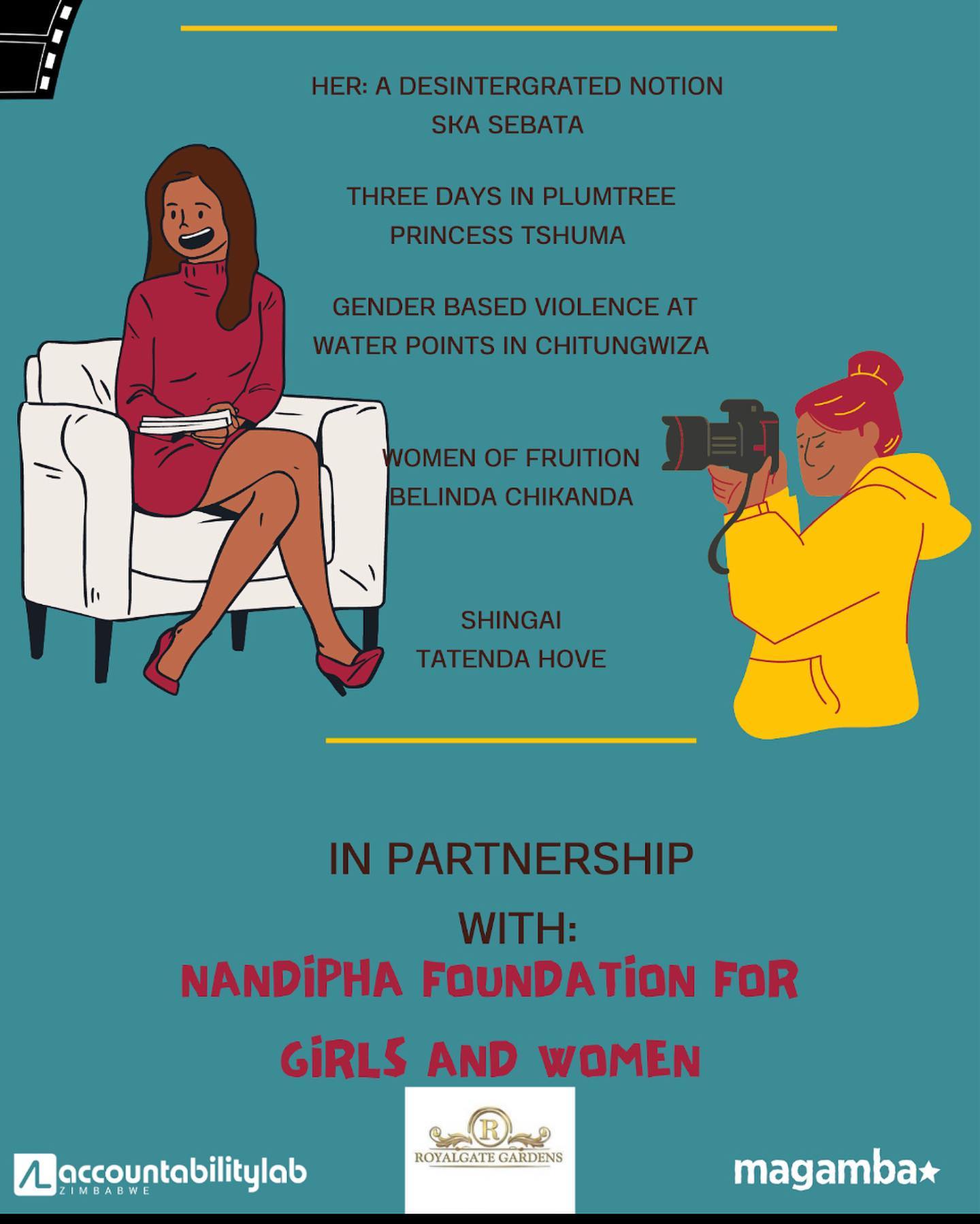NEWS

IN BRIEF
Accountability Lab Zimbabwe participated in a screening of women-centered documentaries […]
SHARE
Accountability Lab Zimbabwe participated in a screening of women-centered documentaries commemorating Women’s Month to showcase short films produced by and showcasing women’s lives. ALZ Film Fellowship organized the screening with the Nandipha Foundation for Women and Girls.
The screening showed films produced by ALZ Film Fellows during their Fellowship year. Among the documentaries was Her: A Disintegrated Notion, a short film by Ska Sebata that draws attention to society’s limitations on women from birth, which confines them to domestic duties in the home. Another film titled Three Days in Plumtree, produced by Princess Tshuma, explores the difficulties pregnant women who live far away from their nearest healthcare facility face. Shingai by Tatenda Hove showcases the challenges faced by a young girl who has to support her mother, who is sick. These circumstances lead the girl to drop out of school and become a drug user. Women of Fruition, by Belinda Chikanda, documents the journey of a group of women in Hwange who create financial independence for themselves by harvesting Baobab fruit and using it to make several products, including coffee. The documentary examines how women have worked in the informal sector to ensure the survival of their families. Finally, a documentary produced by Lemuel Chekai and supported through Civacts explores the extreme circumstances women face when trying to access water at community water points.
These documentaries present the different challenges faced by many women in Zimbabwe. Many of the challenges are directly related to the country’s poor state of service delivery. The need for reliable water sources across most rural and urban communities, accessible healthcare facilities, a meaningful and holistic response to the drug abuse pandemic, and genuine efforts to address Gender-based Violence are just a few of the issues tackled in these documentaries predominantly affect women.
The screenings raised several questions about accountability among participants. For instance, some asked why there were few clinics located very far apart in remote areas while there were many clinics located within a short distance of each other in bigger cities like Harare. Another participant questioned why the service providers did not ensure fair and equitable access to community public services, such as monitoring communal water points, safeguarding women’s equitable access and protection, and providing transportation to remote clinics.
Participants pointed out that there was a need to make elected representatives, government officials, and the general public aware of deficits in service delivery and how well the systems met the needs of the people. The screening attendees emphasized the need for people to know how to hold leaders accountable in their respective communities.
Mechelle Chavango is a Marketing Communications Fellow at Accountability Lab Zimbabwe
